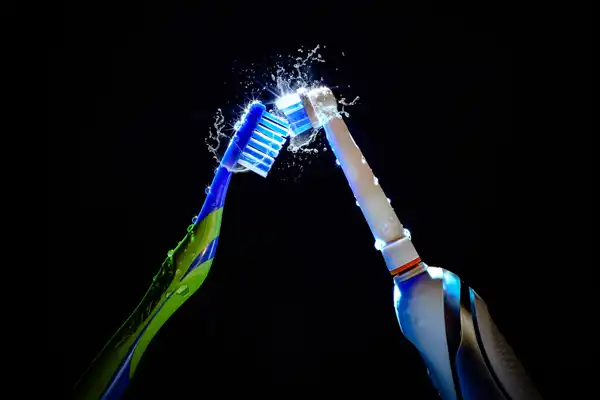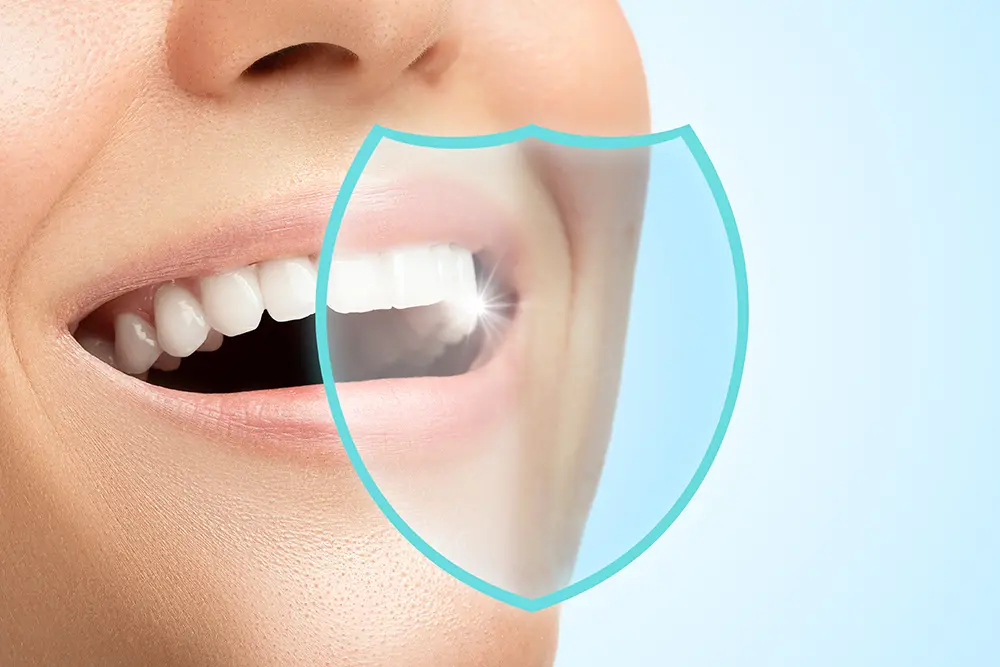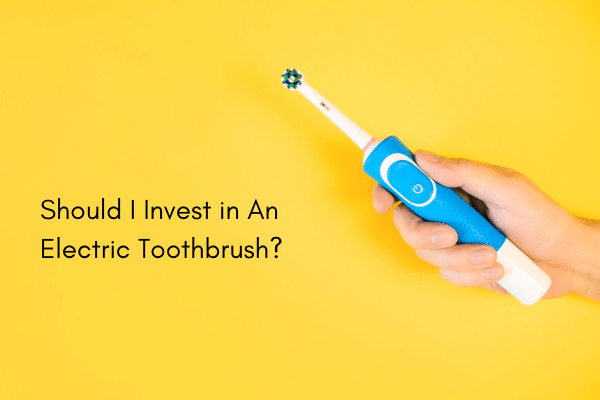Choosing the right toothbrush and using it correctly is the fundamental step in maintaining good oral health and preventing dental problems. Dental plaque is a white sticky film of bacteria that constantly forms on your teeth which can lead to tooth decay and gum disease if not removed regularly. Gum disease such as gingivitis and periodontitis can develop when dental plaque and tartar accumulate over time and irritate the gums. The right toothbrush can help prevent these conditions as it is designed to remove plaque from your teeth and along the gumline.
Electric or Manual?
Electric and manual toothbrushes are both effective tools for maintaining good oral hygiene. Each has its own positives and negatives and the choice between two often comes down to individual preference and needs. Here are some key points to consider:
- Electric toothbrush
Electric toothbrush provide a more consistent and thorough cleaning as compared to manual toothbrush. They usually have rotating or oscillating heads that can remove plaque more effectively. Electric toothbrushes does the work for you, you simply need to guide the brush head for 3-5 seconds on each tooth and let the bristles do the cleaning. People with limited dexterity will benefit most using electric toothbrushes. Some electric toothbrush models come with pressure sensors that will notify you if you are brushing too hard. - Manual toothbrush
Manual toothbrushes are universally available and typically more affordable. They can easily be purchased at stores worldwide. With manual toothbrush, you have complete control over the pressure and technique you use. They are highly portable which makes it super convenient on the move. They too don’t require any special maintenance such as charging, making them straightforward to use.
Ultimately, the choice between a manual and an electric toothbrush depends on your own preference, budget and oral health needs. Both can be effective if used correctly and consistently. It is also important to replace the brush or brush head regularly and proper brushing technique used regardless of the type of toothbrush.
Bristles: Hard vs. Soft
In general, dental professionals rarely recommend the use of hard bristles as they can do more harm than good. Hard bristles are more rigid and firm providing a more aggressive scrubbing action. While they may provide a more vigorous cleaning, hard bristles can negatively impact your teeth and gums which potentially lead to enamel wear, gum recession and tooth sensitivity. Soft bristles on the other hand are more flexible and gentle which less likely to cause overbrushing.
Shape/size of brush head
There is no standard shape that works the best, as long as your toothbrush head is small enough to be able to reach all surfaces. Smaller toothbrush heads are better equipped at reaching all areas in the mouth including the back molars. If the brush is too big, it may not be able to clean hard-to-reach areas.
Are expensive toothbrushes worth it?
Expensive toothbrushes can offer certain benefits but whether it is worth buying depends on your specific needs, preferences and budget. Both affordable and expensive toothbrushes can effectively clean your teeth when used correctly. However, if you have specific concerns or if you value advanced features and technology, investing in an expensive toothbrush may be worth it. At the end of the day, the best toothbrush is one that you will constantly use and the correct brushing technique to maintain good oral hygiene.
Are additional toothbrush features necessary?
Additional toothbrush features such as charcoal-infused or rubber bristles are not necessary for everyone. Their effectiveness is often debated in the dental community. For example, charcoal claims to have absorbent properties which remove toxic stains from teeth, however there is very limited scientific evidence to prove its benefits. According to a study done by the American Dental Association (ADA), there is no proof that charcoal-infused bristles are effective. The effectiveness of a toothbrush is mainly determined by factors like bristle type, proper technique and regularity of brushing. Additional features may not significantly improve overall oral health.
Maintaining good oral hygiene is very crucial for good oral health. Besides choosing the right toothbrush, proper brushing technique is equally important. Brushing should be done mandatorily twice a day ideally in the morning and before bedtime for two minutes each using fluoridated toothpaste. Do you know that only 70% of your teeth get cleaned with just brushing leaving the other 30% uncleaned, thus, flossing daily plays a huge impact on your overall oral hygiene. Most may neglect their oral health until they are experiencing pain however regular dental check-ups are essential to maintaining good oral health. It is ideal to detect and address oral health issues early before they become more serious and costly to treat. Do make sure you are visiting your dentist or dental hygienist every 6 months for routine check-ups and cleanings, though the frequency may vary depending on individual needs and conditions.




